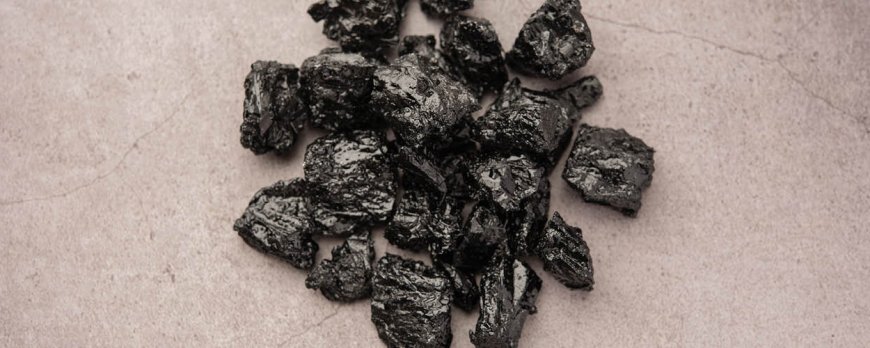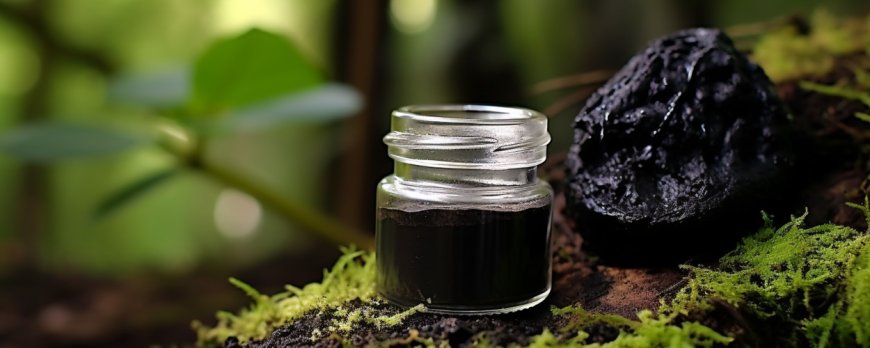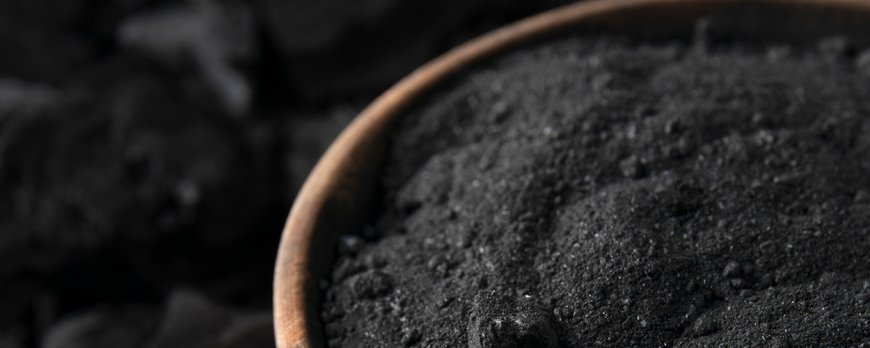Is Shilajit regulated by the FDA?
Uncover the truth: Is Shilajit regulated by the FDA? Find out this and more in our comprehensive exploration of Shilajit's status with health authorities.

Is Shilajit regulated by the FDA?
Shilajit, a popular natural supplement, has raised questions about its regulation by the FDA and its compliance with health authorities.
Key Takeaways:
- Shilajit products have received warning letters from the FDA for making claims that establish them as drugs.
- Claims suggesting that Shilajit treats or prevents diseases are considered illegal by the FDA.
- Shilajit products marketed as drugs require FDA approval before being sold as such.
- The FDA has advised companies to remove disease-related claims to comply with regulations.
- Failure to comply with FDA regulations may result in legal action against Shilajit sellers.

Understanding FDA Regulations for Dietary Supplements
Before delving into the specific regulation of Shilajit, it is important to understand the FDA's guidelines for dietary supplements and the safety standards they implement.
The FDA regulates dietary supplements under the Dietary Supplement Health and Education Act (DSHEA) of 1994. According to the FDA, a dietary supplement is defined as a product that is intended to supplement the diet and contains one or more dietary ingredients, such as vitamins, minerals, herbs, or other botanicals.
Under the DSHEA, dietary supplement manufacturers are responsible for ensuring the safety of their products before they are marketed. However, unlike drugs, dietary supplements do not require FDA approval before they can be sold to consumers.
Key points to consider regarding FDA regulations for dietary supplements:
- The FDA does not independently test or evaluate the safety and efficacy of dietary supplements before they are marketed.
- The FDA can take action against manufacturers if a dietary supplement is found to be unsafe or if it makes false or misleading claims.
- The FDA's role in regulating dietary supplements is primarily post-market, focusing on monitoring adverse events and enforcing good manufacturing practices.
It is crucial for manufacturers and consumers to be aware of these guidelines to ensure the safety and quality of dietary supplements, including products like Shilajit.
Shilajit and the FDA: Current Status
The FDA's stance on Shilajit and its classification under their regulations is crucial in determining its compliance with FDA guidelines. Currently, Shilajit is not regulated or approved by the FDA as a dietary supplement or a drug. This means that there are no specific guidelines or requirements in place for Shilajit products in terms of safety, quality control, or efficacy.
However, it is important to note that the FDA has issued warning letters to companies that sell Shilajit products for making claims that establish the products as drugs. The claims included treating or preventing diseases such as cancer, diabetes, depression, high blood pressure, and kidney stones. These products are considered new drugs and require FDA approval before being marketed as such.
In response to these warning letters, the FDA has advised the companies to remove claims that suggest their products are intended for treating, curing, mitigating, diagnosing, or preventing diseases. Failure to comply with these recommendations may result in legal action from the FDA.
Shilajit Legality: Key Points
- Shilajit is not currently regulated or approved by the FDA
- Companies selling Shilajit products have received warning letters for making unapproved drug claims
- Shilajit products that claim to treat or prevent diseases are considered new drugs and require FDA approval
- The FDA has advised companies to remove disease-related claims from their Shilajit products
- Non-compliance with FDA recommendations may result in legal action
While Shilajit remains unregulated by the FDA, it is essential for companies to adhere to FDA guidelines and recommendations to ensure the safety and quality of their products. Consumers are advised to exercise caution when purchasing Shilajit products and to consult with healthcare professionals before incorporating them into their routine.

Warning Letters and Shilajit Claims
The FDA has taken action against companies selling Shilajit products by issuing warning letters regarding their claims and the potential violation of FDA regulations. These warning letters were prompted by the companies making claims that establish the products as drugs, suggesting that they can treat or prevent diseases such as cancer, diabetes, depression, high blood pressure, and kidney stones. It is important to note that these Shilajit products are considered new drugs, which require FDA approval before being marketed as such.
To ensure compliance with FDA regulations, the FDA advises companies to remove claims from their product labeling and marketing materials that suggest the products are intended for the treatment, cure, mitigation, diagnosis, or prevention of diseases. These claims not only violate FDA guidelines but also mislead consumers, as Shilajit products have not been evaluated and approved by the FDA for the treatment of these conditions.
Failing to comply with the FDA's recommendations may result in legal action being taken against the companies selling Shilajit products. The issuance of warning letters serves as a formal notification from the FDA, urging companies to rectify the violations and bring their product labeling and marketing practices in line with FDA regulations. Non-compliance with these regulations can have serious consequences for both the companies involved and the consumers who rely on accurate and trustworthy information when making decisions about their health and wellness.
Raising awareness of the FDA's actions through warning letters helps to protect consumers and maintain the integrity of the dietary supplement industry. By addressing misleading claims and ensuring compliance with FDA regulations, the FDA aims to safeguard public health and ensure that consumers can make informed choices when considering the use of Shilajit products and other dietary supplements.
Shilajit as a New Drug
The FDA considers certain Shilajit products to be new drugs, requiring them to undergo FDA approval before making claims related to the treatment or prevention of diseases. This classification is based on the claims made by companies selling Shilajit products, which include treating or preventing various diseases such as cancer, diabetes, depression, high blood pressure, and kidney stones.
Under FDA regulations, any product that is intended to diagnose, cure, mitigate, treat, or prevent diseases is classified as a drug. As a result, these Shilajit products must adhere to the rigorous evaluation and approval process set forth by the FDA before they can legally market their products as drugs.
To gain FDA approval, Shilajit products must undergo extensive testing to demonstrate their safety, efficacy, and quality. This process involves submitting detailed data and evidence to support the product's claims, which are then reviewed by the FDA. Only after the FDA determines that the product is safe and effective can it be marketed and sold as a drug for the specified indications.
It is important for companies selling Shilajit products to understand the FDA regulations and seek proper approval before making any claims related to the treatment or prevention of diseases. Failure to comply with these regulations may result in warning letters from the FDA, potential legal action, and negative consequences for both companies and consumers. It is therefore crucial for manufacturers to prioritize FDA compliance to ensure the safety and quality of Shilajit products.
FDA's Recommendations to Shilajit Companies
In response to the violation of FDA regulations, the FDA has advised Shilajit companies to revise their product claims to comply with FDA recommendations. The FDA has issued warning letters to companies selling Shilajit products that make claims suggesting the products are intended for treating, curing, mitigating, diagnosing, or preventing diseases. These claims include diseases such as cancer, diabetes, depression, high blood pressure, and kidney stones.
The FDA's primary concern is that these Shilajit products are being marketed as drugs without the necessary FDA approval. According to FDA regulations, products that make such claims are classified as new drugs and must undergo FDA approval before being marketed as such. Failure to comply with FDA recommendations and remove these prohibited claims may result in legal action against the companies selling Shilajit products.
The FDA's recommendations to Shilajit companies include:
- Removing claims that suggest their products are intended for treating, curing, mitigating, diagnosing, or preventing diseases.
- Ensuring that their product claims align with the intended use of dietary supplements rather than drugs.
- Updating their marketing materials, labels, and websites to comply with FDA guidelines.
- Conducting appropriate product testing and quality control measures to ensure consumer safety and compliance with FDA regulations.
By following these recommendations, Shilajit companies can demonstrate their commitment to FDA compliance and the safety of their products. It is crucial for these companies to prioritize the revision of their product claims to avoid legal consequences and promote transparency and accuracy in the marketing of Shilajit as a dietary supplement.

Potential Legal Action for Non-Compliance
Failure to comply with FDA regulations regarding Shilajit claims may result in legal action against the companies responsible for marketing these products. The FDA has issued warning letters to several companies selling Shilajit products for making claims that establish the products as drugs. These claims include treating or preventing diseases such as cancer, diabetes, depression, high blood pressure, and kidney stones. It is important to note that these products are considered new drugs and require FDA approval before being marketed as such.
To address this issue, the FDA has advised the companies to remove claims that suggest their products are intended for treating, curing, mitigating, diagnosing, or preventing diseases. By doing so, companies can ensure compliance with FDA guidelines and avoid potential legal consequences. Failure to comply with these regulations may not only lead to legal action but also jeopardize the reputation of the company and the safety of consumers.
Implications of Non-Compliance with FDA Regulations:
- Legal action against companies selling Shilajit products that fail to remove prohibited claims.
- Potential fines and penalties imposed by the FDA for non-compliance.
- Possibility of product recalls and removal from the market.
- Damaged brand reputation and loss of consumer trust.
Given the seriousness of these potential consequences, it is crucial for companies selling Shilajit products to ensure compliance with FDA regulations. This includes carefully reviewing product claims, labeling, and advertising to ensure they are in line with FDA guidelines. By taking proactive steps to comply with FDA regulations, companies can protect themselves and their consumers, promoting a safe and trustworthy marketplace for Shilajit products.
Ensuring Shilajit Quality Control
Quality control is a vital aspect of Shilajit production, not only in terms of FDA compliance but also for guaranteeing the safety and efficacy of the products. As an FDA-regulated dietary supplement, Shilajit must meet certain quality standards to ensure its purity, potency, and consistency.
Manufacturers are responsible for implementing rigorous quality control measures throughout the production process. This includes sourcing high-quality raw materials, conducting thorough testing for contaminants, and adhering to Good Manufacturing Practices (GMP) outlined by the FDA. These practices help to minimize the risk of contamination and ensure that consumers receive a safe and reliable product.
Furthermore, obtaining Shilajit certification can provide an additional level of reassurance for consumers. Certification programs, such as those offered by reputable third-party organizations, validate the quality and authenticity of the Shilajit products. These certifications often involve independent testing to verify the product's composition and ensure it meets the established standards.
Benefits of Quality Control in Shilajit Production:
- Ensures the purity and potency of Shilajit products
- Reduces the risk of contamination and harmful substances
- Confirms compliance with FDA guidelines and regulations
- Provides consumers with confidence in the product's safety and efficacy
- Supports the reputation of manufacturers and the Shilajit industry as a whole
By prioritizing quality control measures, manufacturers can demonstrate their commitment to consumer safety and FDA compliance. It is essential for both manufacturers and consumers to recognize the importance of quality control in the production of Shilajit products, ensuring the availability of safe and effective dietary supplements for those seeking its potential health benefits.
Shilajit's Role as a Dietary Supplement
To understand Shilajit's regulatory status, it is important to evaluate its classification as a dietary supplement and the potential implications for FDA approval. As a dietary supplement, Shilajit falls under the regulatory purview of the FDA, which mandates specific guidelines for the safety and quality control of such products.
When it comes to FDA approval, dietary supplements like Shilajit are subject to different requirements compared to drugs. Unlike drugs, dietary supplements do not undergo pre-market approval by the FDA. However, the FDA requires dietary supplement manufacturers to ensure their products meet the standards of identity, purity, strength, and composition set forth in the FDA's current Good Manufacturing Practices (cGMP) regulations.
The FDA has issued warning letters to companies selling Shilajit products for making claims that establish the products as drugs, rather than dietary supplements. These claims include treating or preventing diseases such as cancer, diabetes, depression, high blood pressure, and kidney stones. Such claims position Shilajit as a new drug, which necessitates FDA approval before marketing. In light of this, the FDA has advised these companies to remove claims suggesting their products are intended for disease treatment or prevention.
Non-compliance with FDA regulations can have serious consequences for companies selling Shilajit products. Failure to remove prohibited claims may result in legal action, emphasizing the importance of adhering to FDA guidelines. Additionally, maintaining quality control measures is crucial for both FDA compliance and ensuring consumer safety. Certifications may play a role in demonstrating the adherence to these quality control measures, ensuring that Shilajit products on the market meet the required standards.

Shilajit and FDA Compliance
In order to maintain consumer trust and ensure the safety of Shilajit products, it is essential for manufacturers to prioritize FDA compliance and adhere to the regulatory guidelines. The FDA has issued warning letters to companies that sell Shilajit products for making claims that establish the products as drugs. These claims include treating or preventing diseases such as cancer, diabetes, depression, high blood pressure, and kidney stones. It is important for manufacturers to remove claims that suggest their products are intended for treating, curing, mitigating, diagnosing, or preventing diseases, as failure to comply may result in legal action.
One of the key aspects of FDA compliance for Shilajit products is ensuring the accuracy of product labeling and marketing materials. Manufacturers must ensure that the information provided on the product labels and in any promotional materials is in accordance with FDA regulations and does not make unsubstantiated claims.
Additionally, manufacturers should prioritize quality control measures to ensure the safety and purity of Shilajit products. This includes sourcing the highest quality raw materials, conducting rigorous testing for contaminants, and implementing proper manufacturing practices to maintain product integrity.
By adhering to FDA regulations and guidelines, manufacturers can not only maintain compliance but also contribute to the overall safety and effectiveness of Shilajit products. It is essential for manufacturers to stay updated on any changes or updates in FDA regulations and make the necessary adjustments to their processes to ensure ongoing compliance.
The Future of Shilajit Regulation
As the FDA continues to monitor Shilajit products and their compliance with regulations, it is likely that additional requirements and certifications may be introduced in the future. The FDA has already taken action against companies selling Shilajit products that make claims suggesting the products are intended for treating, curing, mitigating, diagnosing, or preventing diseases. These claims position the products as drugs, which require FDA approval before being marketed as such. The FDA has issued warning letters to these companies, urging them to remove the prohibited claims to ensure compliance.
With the increasing popularity and use of Shilajit as a dietary supplement, the FDA's oversight is expected to continue. The agency is dedicated to protecting the public from misleading or false claims and ensuring the safety and quality of dietary supplements. As a result, it is likely that the FDA will further scrutinize Shilajit products and potentially introduce additional requirements for manufacturers to meet.
One possible area of future regulation could involve the certification of Shilajit products. Certification programs would establish specific standards and guidelines that manufacturers must adhere to in order to receive certification. These programs would provide consumers with the assurance that the Shilajit products they purchase meet certain quality and safety standards set by recognized industry authorities.
Ultimately, the future of Shilajit regulation will depend on continued research and monitoring by the FDA, as well as the actions taken by manufacturers and industry stakeholders. As the demand for Shilajit grows, it is crucial for companies to prioritize FDA compliance and transparency to ensure consumer safety and maintain trust in the industry.
Conclusion
The FDA's regulation of Shilajit, while complex, underscores the significance of FDA compliance and the need to prioritize consumer safety when it comes to dietary supplements. The FDA has issued warning letters to companies that sell Shilajit products for making claims that establish the products as drugs. These claims include treating or preventing diseases such as cancer, diabetes, depression, high blood pressure, and kidney stones.
It is important to note that Shilajit products marketed with such claims are considered new drugs and require FDA approval before being marketed as such. In response, the FDA has advised companies to remove any claims that suggest their products are intended for treating, curing, mitigating, diagnosing, or preventing diseases. Failure to comply with FDA regulations may result in legal action.
Therefore, it is crucial for companies selling Shilajit products to ensure FDA compliance by adhering to FDA guidelines and removing prohibited claims. This not only safeguards the reputation and legality of their products but also ensures the safety and well-being of consumers who rely on these dietary supplements for various health reasons.
As the landscape of FDA regulations continues to evolve, it is essential for companies in the Shilajit industry to stay updated and adapt accordingly. By prioritizing FDA compliance and implementing rigorous quality control measures, manufacturers can maintain the integrity of their products and contribute to the overall safety and trustworthiness of the dietary supplement market.
FAQ
Is Shilajit regulated by the FDA?
Yes, Shilajit is regulated by the FDA.
What are the FDA regulations for dietary supplements?
The FDA has specific regulations for dietary supplements, including safety and quality control measures.
What is the current status of Shilajit in relation to FDA regulations?
The current status of Shilajit in relation to FDA regulations is under scrutiny to determine its legal standing.
Why were warning letters issued to companies selling Shilajit products?
Warning letters were issued to companies selling Shilajit products due to claims that establish the products as drugs, which is in violation of FDA guidelines.
Is Shilajit considered a new drug by the FDA?
Yes, Shilajit is classified as a new drug and requires FDA approval before being marketed as such.
What recommendations did the FDA make to Shilajit companies?
The FDA recommended that companies selling Shilajit products remove claims that suggest their products are intended for treating, curing, mitigating, diagnosing, or preventing diseases.
What are the potential legal consequences of non-compliance with FDA regulations?
Non-compliance with FDA regulations may result in legal action against companies selling Shilajit products that fail to remove prohibited claims.
How important is quality control for Shilajit products?
Quality control is crucial for Shilajit products to ensure FDA compliance and consumer safety.
Is Shilajit categorized as a dietary supplement?
Shilajit may be considered a dietary supplement, but it requires FDA approval to be marketed as such.
Why is FDA compliance important for Shilajit products?
FDA compliance is important to ensure the safety and quality of Shilajit products for consumers.
What does the future hold for Shilajit regulation?
The future of Shilajit regulation may involve additional FDA requirements and certifications for Shilajit products.
Source Links
- https://www.fda.gov/inspections-compliance-enforcement-and-criminal-investigations/warning-letters/adaptive-energy-llc-553626-09062018
- https://www.agg.com/news-insights/publications/with-one-warning-letter-fda-demonstrates-many-of-the-ways-it-can-establish-the-intended-use-of-a-product-labeled-as-a-dietary-supplement/
- https://www.fda.gov/inspections-compliance-enforcement-and-criminal-investigations/advisory-letters/healthy-nutrition-group-llc


































































































































